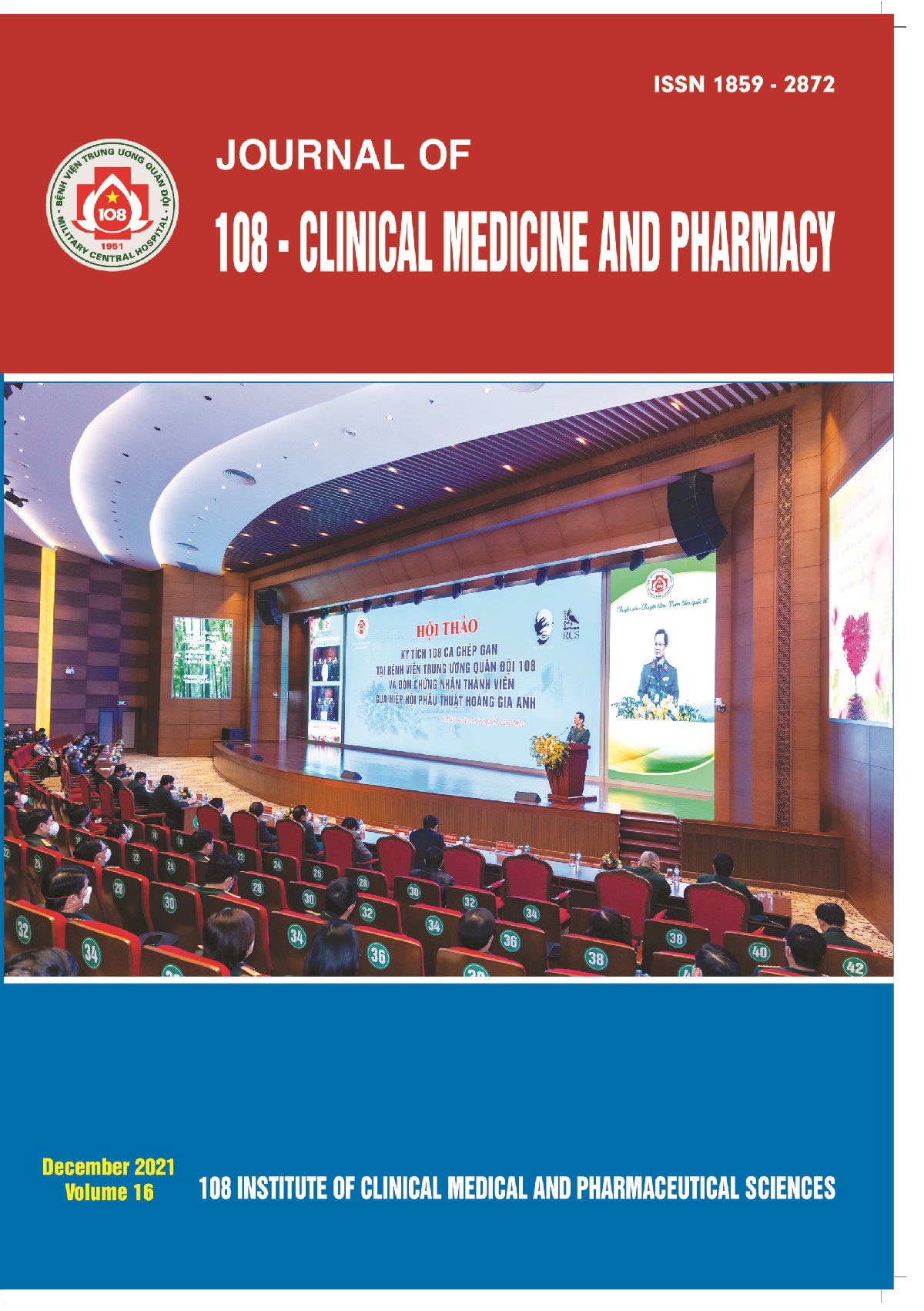Efficacy and safety of endoscopic retrograde cholangiopancreatography for the treatment of acute biliary pancreatitis with or without cholangitis
Main Article Content
Keywords
Abstract
Objective: To evaluate the result of endoscopic retrograde cholangiopancreatography (ERCP) for treatment of acute biliary pancreatitis (ABP) with or without cholangitis. Subject and method: A retrospective cohort study, 30 patients of ABP at Institute of Gastroenterology and Hepatology, 108 Military Central Hospital, from January 2019 to November 2021. Result: We divided the patients into 2 groups: 19 patients ABP with cholangitis, 11 patients without cholangitis. Mean age: 60.7 ± 17.9 (26 - 92), male/female (1.5). The technical success rates were 94.7% and 100%, the clinical success rates were 100% and 90.9% of the two groups with and without cholangitis, respectively. The concomitant cholangitis was not associated with the timing of ERCP (p=0.192), technical success rate (p=0.439), and clinical success rate (p=0.367). And the total length of hospital stay was not different between the two groups (7.7 ± 3 vs. 7.7 ± 4.1 days, p=0.974). No significant differences were found in the duration of hospital after ERCP or procedural-related complications, in patients with acute biliary pancreatitis, according to the concomitant disease (with vs without cholangitis). Conclusion: These findings support ERCP could be performed effectively and safely in acute biliary pancreatitis with or without cholangitis.
Article Details
References
2. Folsch UR, Nitsche R, Ludtke R, Hilgers RA, Creutzfeldt W (1997) Early ERCP and papillotomy compared with conservative treatment for acute biliary pancreatitis. The German Study Group on Acute Biliary Pancreatitis. N Engl J Med 336: 237-242.
3. Neoptolemos JP, London N, Slater ND, Carr-Locke DL, Fossard DP, Moosa AR (1986) A prospective study of in the diagnosis and treatment of gallstone acute pancreatitis A rational and safe approach to management. Arch Surg 121(6): 697-702.
4. Nonikov A (2018) ERCP Improves mortality in acute biliary pancreatitis without cholangitis. American Journal of Gastroenterology 113: 44.
5. Schepers NJ, Hallensleben NDL et al (2020) Urgent endoscopic retrograde cholangiopancreatography with sphincterotomy versus conservative treatment in predicted severe acute gallstone pancreatitis (APEC): A multicentre randomised controlled trial. Lancet 396(10245): 167-176.
6. Seiki K (2018) Tokyo Guidelines 2018: Diagnostic criteria and severity grading of acute cholangitis (with videos). J Hepatobiliary Pancreat Sci (2018) 25: 17-30.
7. Ulku Saritas and Yucel Ustundag (2021) Endoscopic retrograde cholangiopancreatography in acute biliary pancreatitis, Intech Open DOI: 10.5772/ intechopen.96545.
8. Yuk TL (2008) ERCP chapter 33, Choledocholithiasis, Copyright 2008 Elsevier Inc: 357-366.
 ISSN: 1859 - 2872
ISSN: 1859 - 2872
